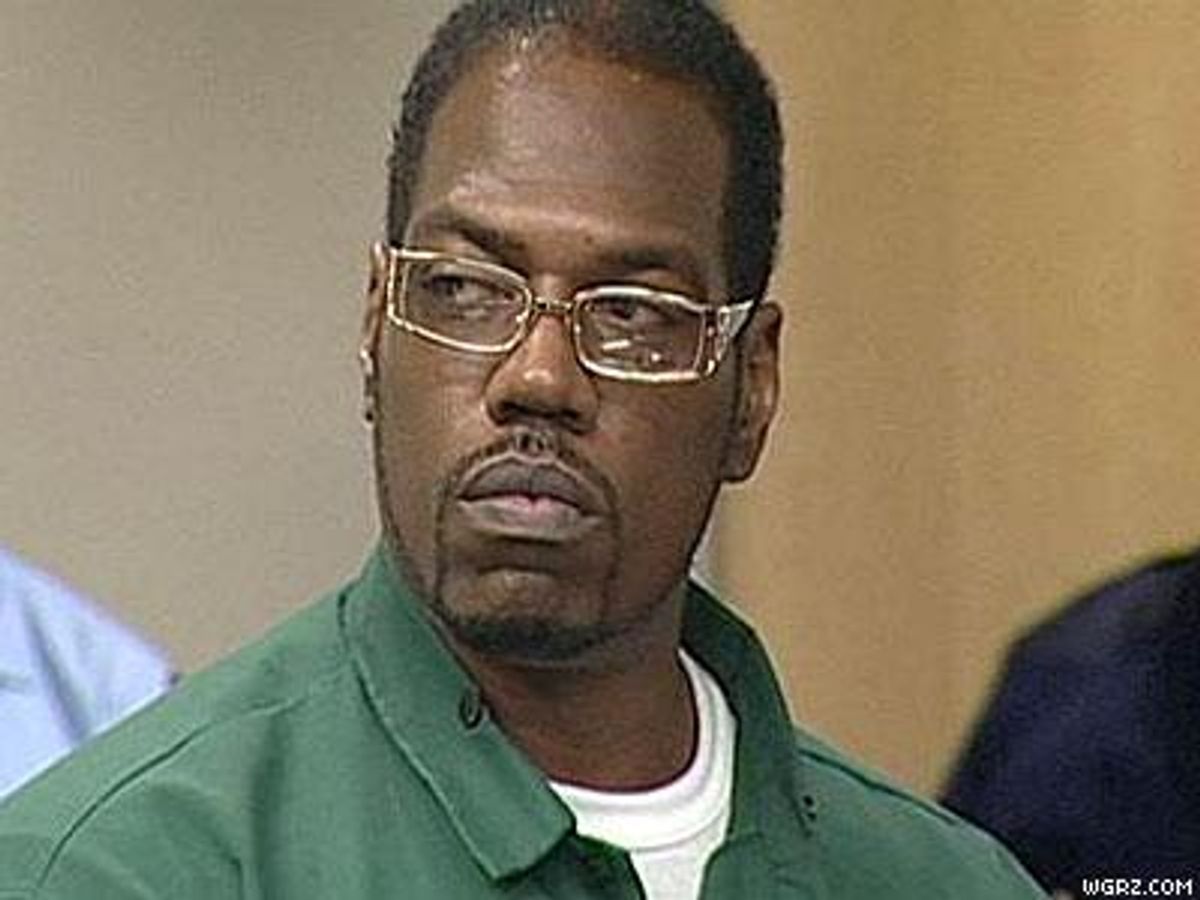In 1998, Nushawn Williams began a sentence of 12 years in prison after being accused of infecting 13 girls and women in Chautauqua County, N.Y., with HIV — including a 13-year-old and a 15-year-old. The HIV allegations were never heard in court, as Williams agreed to a plea deal in which he would serve 12 years on charges that included statutory rape and reckless endangerment. But it's been three years since his sentence was supposed to be completed, and Williams, now 36, is still in prison, reports the Buffalo News.
He is being kept there under New York State's civil confinement law, passed years after the original plea deal, which allows for anyone with HIV to be confined indefinitely for infecting a sexual partner. But now Williams's legal team has produced startling evidence that he never had HIV, as a court considers whether he should remain confined. In a pretrial hearing, lawyer John R. Nuchereno, claimed that Williams did not have HIV, based on an electron microscope analysis of his blood by the University of Massachusetts School of Medicine. Since the original case never went to trial, the evidence concerning HIV transmission did not get a public hearing.
Though many experts claim that microscopic analysis is not a proper way to test for HIV, Nuchereno is being backed up by several organizations, including the California-based Office of Medical and Scientific Justice, which runs the HIV Innocence Project. However, the Office of Medical and Scientific Justice is reportedly an AIDS denialist organization, not believing that HIV causes AIDS or even exists. Seth Kalichman, an HIV/AIDS prevention and treatment researcher, says the people behind the group are not really scientists at all and are potentially damaging public health, offering false hope to HIV-positive people. “These guys provide them with a way out,” Kalichman told the News. “There have been people who have died because they listened to these people.”
Still, more mainstream HIV organizations are interested in Williams's case, seeing it as criminalization of a disease, instead of Williams himself, and pointing to the disparate sentencing in a similar case. Two years ago, a 20-year-old man from Buffalo was sentenced to one year in jail for having unprotected sex with four adult women and a 15-year-old girl while knowing he was HIV-positive. “It was similar enough to say, ‘My God, the treatment was so different,’” Nuchereno told the News.
Catherine Hanssens, executive director of the Center for HIV Law and Policy in New York City, said the state's application of its civil confinement law “is informed by grossly outdated misunderstandings of HIV, and the state should really be ashamed about it.”
















































































